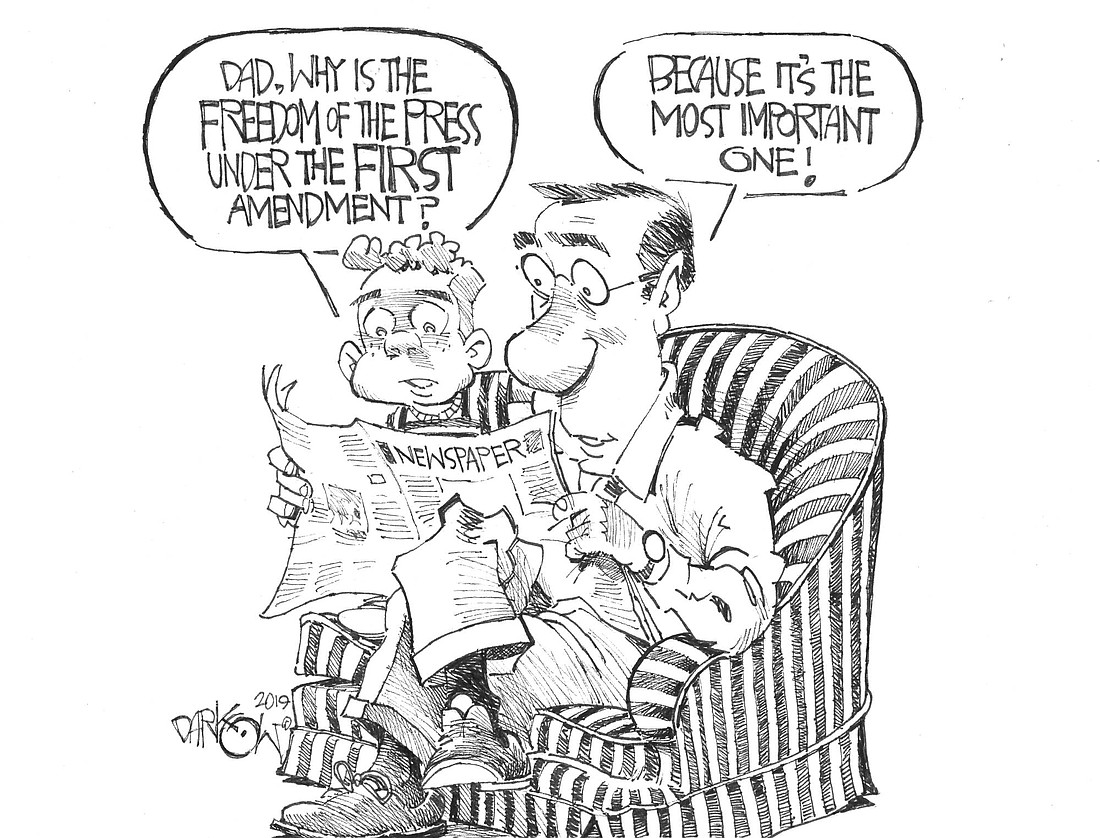- January 7, 2025
-
-
Loading

Loading

Newspapers and journalists around the world are in the crosshairs — literally in the case of the five who were murdered at the offices of the Capital Gazette on June 18, 2018, and figuratively for the rest of us who are undermined by the term “fake news” on a regular basis from school children all the way up to the White House.
But this week, which is National Newspaper Week, I challenge you to imagine a world without journalists.
Imagine seeing two conflicting viewpoints on Facebook and feeling overwhelmed. Perhaps you wish you could get all the relevant facts in one place so that you can make your own decision and not be led astray by emotional opinions. Where would you turn if it weren't for a journalist's efforts?
As editor, I have led meetings with reporters twice a week every week for the past decade. Never once have we plotted against a candidate or other sources to make them look bad. On the contrary, we regularly challenge each other to ask whether it might appear to our readers that we are biased, and we try our best to reframe the story to eliminate any hint of it.
Meanwhile, we are bombarded by press releases and story tips from political activists, begrudged employees, government entities, businesses and nonprofits — all of whom have an interest in telling the story in a way that will benefit them. The journalist’s job is to sincerely say thank you for the press release or the story idea — and then to see through it, to be skeptical of every claim, and to find out what really happened and what it really means to the reader. We then try to put those facts in terminology that a fifth grader can understand and do so in a way that will engage readers enough to get past the first paragraph.
Fact-finding is the grand tradition of journalism, and it is why the freedom of the press is enshrined in our Constitution: If the press were ever to be controlled by those in power, we would lose our balance as a society.
But does all this really apply to community news? After all, we’re not exactly uncovering Watergate scandals in our little town.
To some residents, what we're doing makes an even bigger impact on their lives than Watergate did.
I recently received an email from a resident who asked that I send a reporter to a neighborhood meeting. She was concerned that her elected officials were not paying enough attention to the residents, and she believed that if a reporter were in the room, the official would listen more intently.
That is the service we provide.
Without the community newspaper, how would you learn who is running for office and what they stand for?
How would you learn of the tragedies of your neighbors across town — and what you can do to help them?
How would you evaluate whether your city is taking the appropriate steps to help your children have a bright future?
During National Newspaper Week, I invite you to do three things to support community journalism.
First, avoid using the term “fake news.” If we have lost your trust, tell us why, and we will do everything we can to fix it.
Second, tell us what news is important to you. Is it your grandchild’s 4-year-old birthday party? Email a photo, and we will put it in our Your Town section. Is it a troubling trend that you want us to investigate? Send us your story ideas and letters to the editor.
Third, help our partners prosper. These pages are made possible by local business owners who believe that the Observer is reaching their future customers. So when you’re reading the Observer, consider the ads as well, and when you patronize those businesses, tell them you appreciate them for supporting the community newspaper.
Our mission is to inspire our communities with extraordinary local content, and to help our partners prosper. Thank you for letting us be part of your community — this week and many more to come.